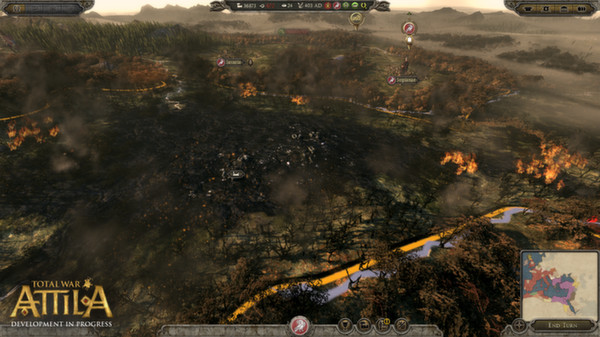There are few things the Huns can’t fix.
It’s difficult to imagine a more thrilling period of ancient history than the rise and fall of the Roman Empire. The drama, the glory, the unprecedented reign and the fiery, dreadfall demise—all just begging to be immortalized by Hollywood, TV, and of course, real-time strategy games. The fine folks at The Creative Assembly have known this for well over a decade, and while 2013’s Total War: Rome II didn’t quite live up to the lofty divinations its groundbreaking forebear emphatically implied, it did eventually morph into a near-equally solid title. It may have taken ample fan modifications and a dozen or so DLC packs to get there, but as the ancient Roman warriors of yore used to say, “My honour was not yielded, but conquered merely.” Disclaimer: That may actually have been Cleopatra.
But alas, it’s the thought that counts when dealing in matters of the hoary and archaic, especially when they’re peppered with famous events that outlined the trajectory of ancient civilizations and mankind itself. My personal experience with the Total War series comes mainly in the form of a childhood addiction to the original Rome; its sequel, for better or worse, largely escaped me. As such, I’ve been immensely delighted with my Total War: Attila playtime on the whole, in that if I were asked to place it closer to my memories of the original or the widely-reported growing pains of its sequel (which, admittedly, I only very briefly experienced firsthand), I’d select the former without question. This alone is a win for a new Total War game.
Attila manages to erect a new, fresh identity, and for a series with a substantial bit of baggage, that’s very much a good thing. In fact, the list of tweaks, additions, and alterations is so massive that addressing them all in a review could prove futile. To me, the latest Total War’s greatest strength is its ability to implement heaps of technical and mechanical improvements that are very much strategy geek-pleasers, yet seamlessly blend them with the overarching themes of the chosen time period (essentially the fall of Rome and the dawn of the Dark Ages). When said themes begin leaking into your established pattern of play and force massive strategy adjustments by way of very real gameplay ramifications, that’s when things really start to get interesting.
I’ll come back to that a bit later, but Attila is so packed with fresh morsels of wartime strategy goodness that I need to take a moment and address some of them. As veterans of the series are well aware, Campaign mode involves the selection of a faction. This time around you’ll have access to a whopping 56 of them, and the choice between the Eastern Roman Empire and, say, the revenge-thirsty Visigoths (not to be confused with your friendly neighborhood Vigoroth) is a substantial one indeed. Additionally, nomadic factions known as hordes are also available. These barbaric brigands can conquer and form settlements like any other, but possess the unique ability to pick up and hit the road at any given time.
Things not working out with that town you just pillaged? Accidentally scorched its farmable land and reduced one-too-many supply towers to useless heaps of rubble? Not a problem—just pack up and move on. I’m not kidding about land fertility, either; it’s very fickle, very real, and very flammable. In other words, raze at your own risk.
If there’s one issue I have with Attila (and I actually have two or three), it’s the over-reliance on menus and various GUI “trees.” I imagine this complaint may come as a bit of a shock to The Creative Assembly, as the Total War experience has been substantially streamlined in recent efforts. And yet, the more features you add or re-introduce, the more menu reform is needed to counter them. Family Trees have been revived from the original Rome, for example, and while the ability to essentially “breed” your bloodlines and balance power between your own kin and the many nobles who desire it for themselves is as compelling as ever, I often felt it was just too much time spent staring at what essentially amounts to non-action. Is there an easy fix to an end-result that doesn’t compromise the depth of the systems it addresses? Perhaps not. But I wouldn’t be opposed to some level of compromise either.
If you can accept the extent you’ll repeatedly go interface-diving, the various dynamics of Attila’s tightly-hewn European warscape are so well-placed that it really is difficult to spend too much time complaining. Earlier I mentioned overarching themes; the best example is the climate change that occurred between the fall of Rome and the Renaissance. Though the game's generational reach isn’t quite that massive, as years pass you will begin to notice downward weather patterns, frigid temperatures, and banks of snow appearing where there previously were none. It may sound minor, but if your faction is on the brink of civil war, the Huns are approaching from the east (if you’re brave enough to play as a Roman faction, anyway), and suddenly you’ve got weather to deal with. Yes, things can get hectic in a hurry. Add in the fact that fire is essentially a weapon now, and you may find yourself clocking out and restarting Campaign mode in a startlingly brutal blaze of Hun-tastic glory.
This brings me to my two other issues with Attila: fire, and something that often appears along with it. The addition of fire as a destructive force is fantastic, and the ability to simply “raze” a settlement you don’t plan to occupy definitely adds to the realism of commanding a ruthless, barbaric horde. Even so, once the novelty wore off, I found the functionality just a little bit too overpowered. Sure, I could simply choose not to raze anything and reap the benefits of productive settlements instead, but when destructive, fiery goodness beckoned, I often found it too tough to resist. It’s like a turbo button. Are you really going to ignore it when you know it’s there? The addition of flaming weaponry is hardly a game-wide balance-disruptor, but I felt its power was overstated.
Unfortunately, this also brought to my attention one other flaw: AI behavior. AI has never been an incredibly strong point for Total War, and while there certainly were multi-hour stretches during which AI behaved smartly, I’d often encounter bursts of wonky AI actions that just didn’t add up. The near-comical helpless panic while razing is one example; another can be found in savage enemy forces that simply get stuck and never arrive. While the latter is more a glitch than off-kilter behavior and only occurred once, it still yanked me out of Attila’s immersive parallel universe a bit more abruptly than I would have liked. The Creative Assembly’s recreation of history is genuinely rich and engrossing; as such, it really does sting when some technical flaw crops up and throws off your rhythm. Oftentimes when it did, I simply shut my PC and came back later.
Still, this ought not deter you from Total War: Attila, and for what it lacks in pacing and enemy behavior, it more than earns back in visual presentation and historical authenticity. I was more than pleased with the game’s graphics, and though I can’t prove by eyeballing alone whether or not this is a brand new engine or something heavily altered and modified, I can confirm that Attila manages thoroughly impressive detail, draw distance, and smooth-enough frame rates without taxing my PC too terribly. My gaming laptop is capable-yet-modest compared to the average custom-built rig, and I experienced no graphical problems whatsoever. Attila gets top marks for aesthetics from this reviewer, of that you can be sure.
The question many are no doubt dying to have answered is a simple one: Is Total War: Attila a return to form for the series? Frankly, there may never be an RTS to hit as hard as Rome did in 2004 relative to what already existed, and in 2015 there’s absolutely nothing wrong with that. Perhaps it’s best to think of it this way: If the occasional AI glitch or incoming onslaught of paid DLC gives you unbearable or unwanted flashbacks to Rome II, then you may want to avoid Attila altogether. But for everyone else, you’d be remiss to deprive yourself of a rich, captivating experience that, though not quite perfect now, will likely achieve true greatness via updates well before its successor arrives.
-
Rich historical context, fascinating time period
-
Clear effort has gone into adding new features and restoring old ones
-
Aside from one addition, strategy elements are brilliantly balanced
-
56 factions is a huge number, and hordes are a blast
-
Razing, though fun, can sometimes feel slightly broken
-
The game is still menu-heavy despite attempts at streamlining
-
AI behaves well in streaks, but repeatedly gets wonky
Total War: Attila
-
Total War: Attila #1
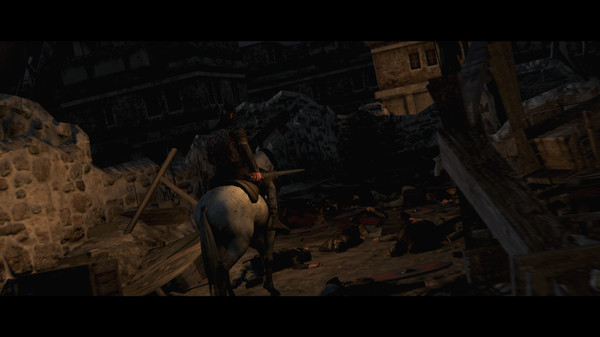
-
Total War: Attila #2
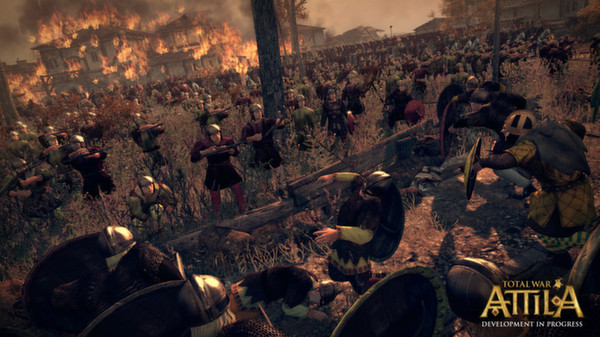
-
Total War: Attila #3
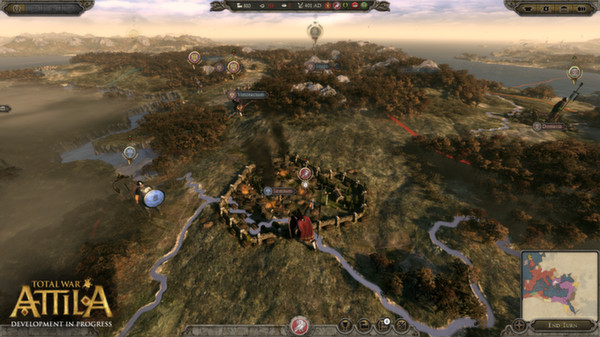
-
Total War: Attila #4
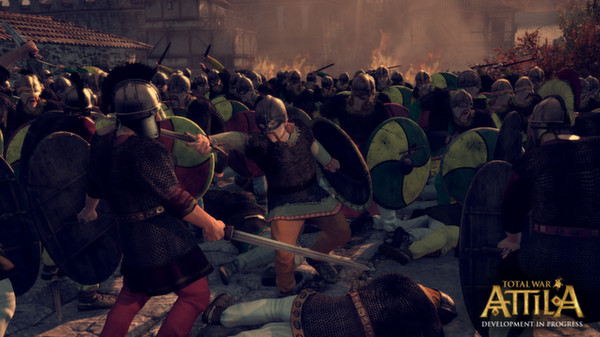
-
Total War: Attila #5
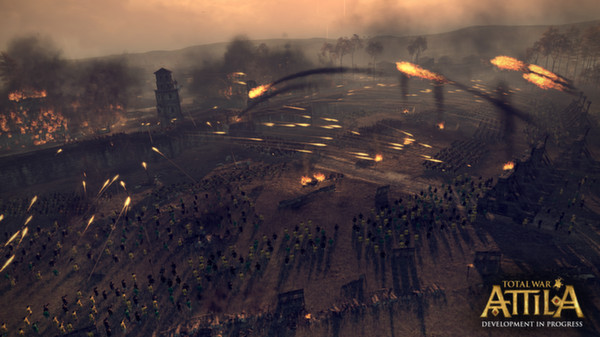
-
Total War: Attila #6
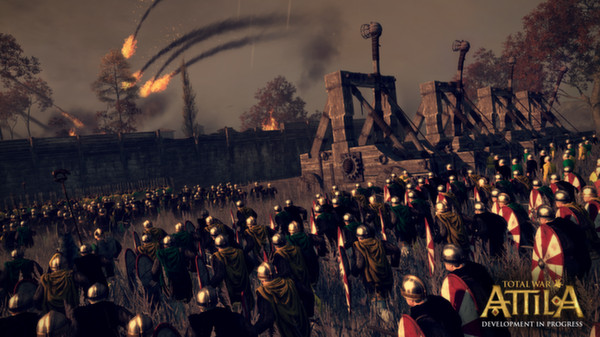
-
Total War: Attila #7
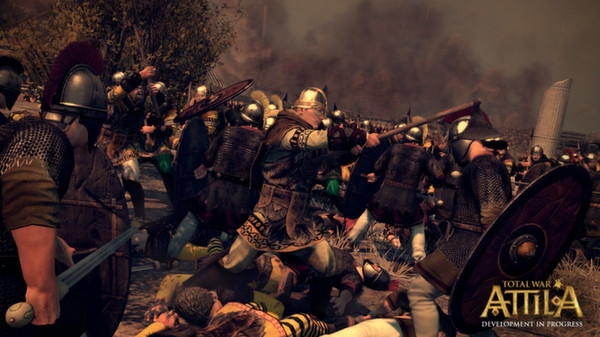
-
Total War: Attila #8
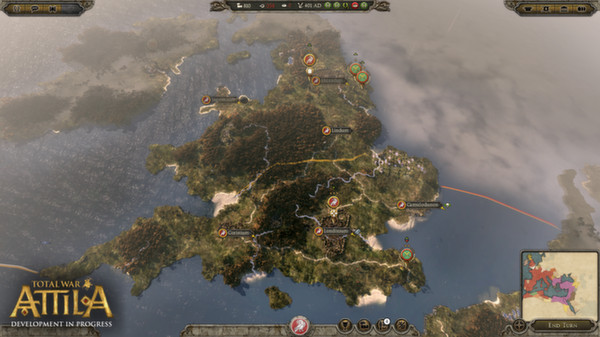
-
Total War: Attila #9
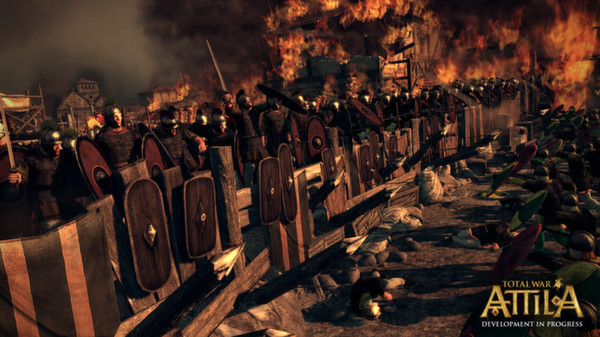
-
Total War: Attila #10
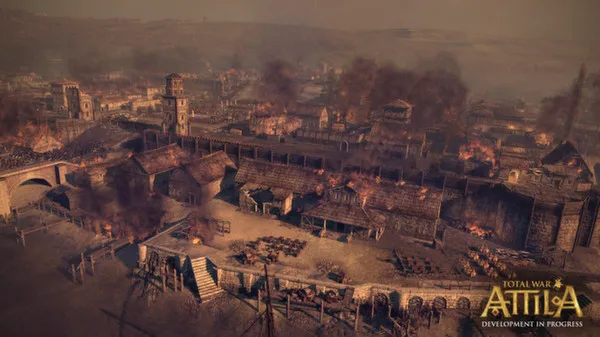
-
Total War: Attila #11
